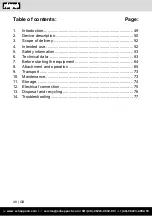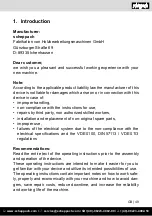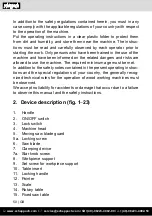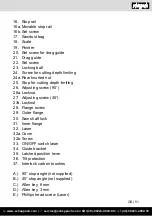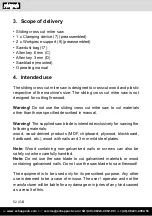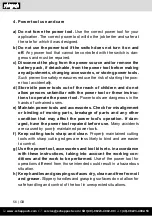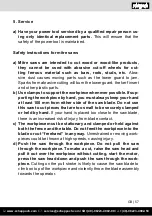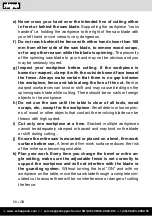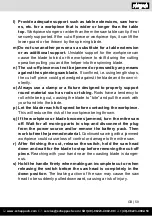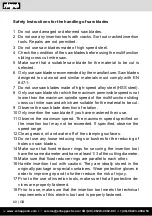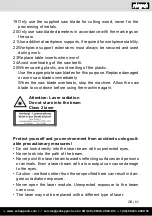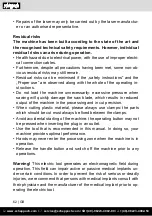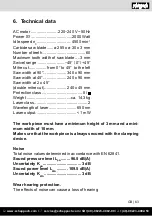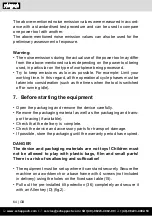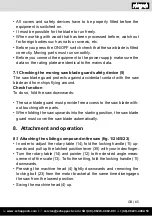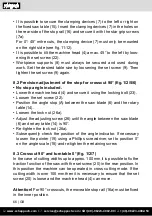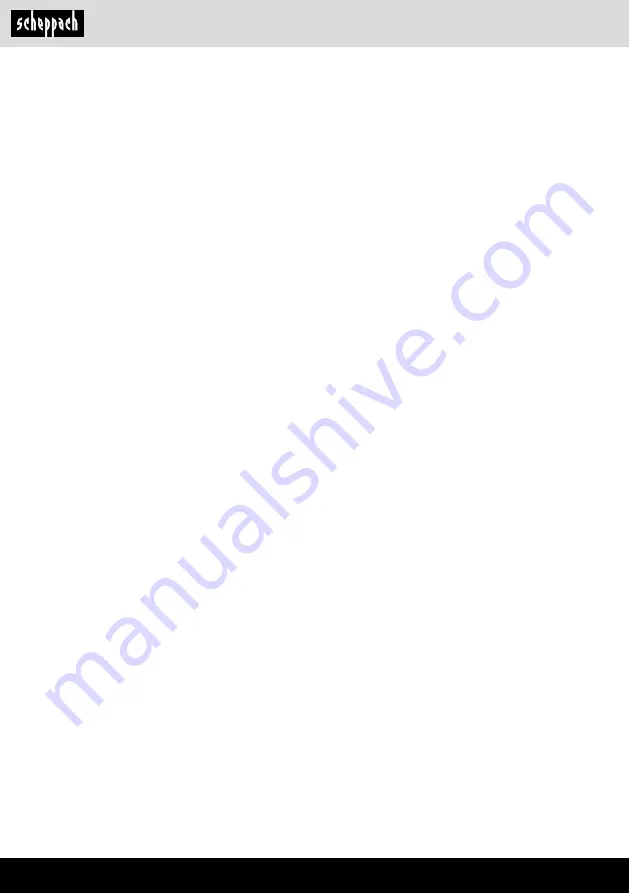
www.scheppach.com /
service@scheppach.com /
+(49)-08223-4002-99 /
+(49)-08223-4002-58
60 | GB
Safety Instructions for the handling of saw blades
1 Do not use damaged or deformed saw blades.
2 Do not use any insertion tools with cracks. Sort out cracked insertion
tools. Repairs are not permitted.
3 Do not use saw blades made of high speed steel.
4 Check the condition of the saw blades before using the multifunction
sliding cross cut mitre saw.
5 Make sure that a suitable saw blade for the material to be cut is
selected.
6 Only use saw blades recommended by the manufacturer. Saw blades
designed to cut wood and similar materials must comply with EN
847-1.
7 Do not use saw blades made of high-speed alloy steel (HSS steel).
8 Only use saw blades for which the maximum permissible speed is not
lower than the maximum spindle speed of the multifunction sliding
cross cut mitre saw and which are suitable for the material to be cut.
9 Observe the saw blade direction of rotation.
10 Only insertion the saw blade if you have mastered their use.
11
Observe the maximum speed. The maximum speed specified on
the insertion tool may not be exceeded. If specified, observe the
speed range.
12
Clean grease, oil and water off of the clamping surfaces.
13 Do not use any loose reducing rings or bushes for the reducing of
holes on saw blades.
14
Make sure that fixed reducer rings for securing the insertion tool
have the same diameter and have at least 1/3 of the cutting diameter.
15
Make sure that fixed reducer rings are parallel to each other.
16 Handle insertion tool with caution. They are ideally stored in the
originally package or special containers. Wear protective gloves in
order to improve grip and to further reduce the risk of injury.
17 Prior to the use of insertion tools, make sure that all protective de-
vices are properly fastened.
18 Prior to use, make sure that the insertion tool meets the technical
requirements of this electric tool and is properly fastened.



